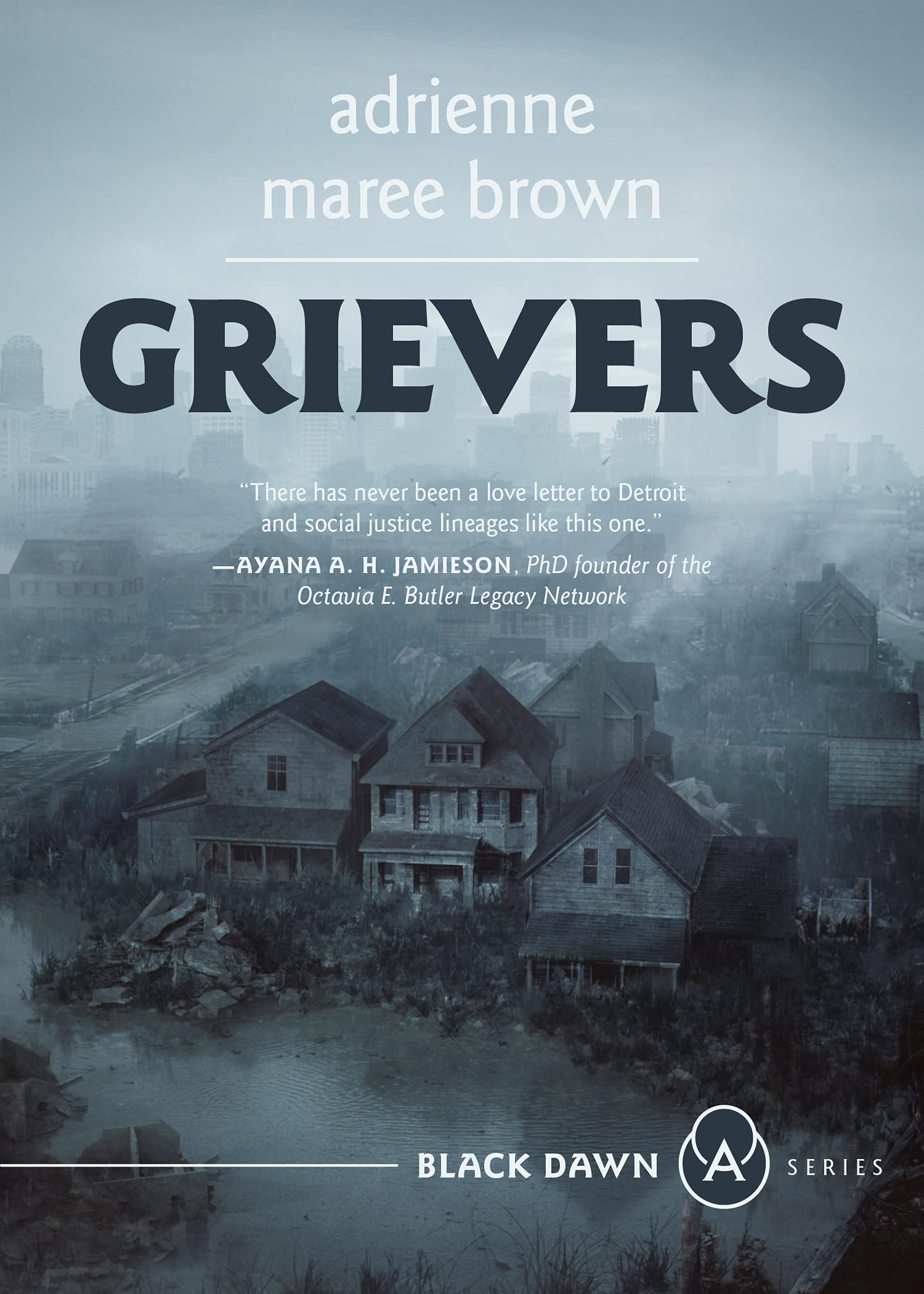Black History Month Celebration: Dai’s Book Review of “Grievers” by Adrienne Maree Brown
Grievers
adrienne maree brown
I loved this book. Grievers is a quiet, personal, and deeply human story, and it made me an instant fan of adrienne maree brown.
Grievers follows Dune, whose mother Kama is the first victim of a strange disease (later named H-8) affecting only Black people sweeping Detroit. While she grieves and cares for her grandmother, the city is in turmoil, and life there is changed forever.
It seems strange to say that not much happens in this book, but in this case it is not a bad thing. This book perfectly encapsulates the process of grief, from the first shock to eventually making a sort of truce with the loss.
Though Kama dies at the beginning, through Dune’s memories and the mark she left on her home and city, we come to know and love her. Both her presence and absence loom over the story. It feels so important that Kama’s life and death has meaning, she was powerful and physical and left her mark on the world. Death and loss is universal, but I was struck by how much brown clearly values and understands people. I have never come across that pain described so accurately in a book before.
A large part of what made this story so powerful for me was just how ordinary Dune is. Though she comes from a family of thinkers and activists and they influenced her deeply, Dune is simply trying to live her life as best she can, and that in itself is an act of defiance, particularly as a poor, queer Black woman.
This is the point where I should say Grievers is the first of AK Press’ Black Dawn series, and their mission statement is to centre black voices, queer voices, and other marginalised groups while demonstrating anarchist principles. Grievers is a very strong first showing as it is unabashedly political; all at once anti-colonialism, anti-capitalism, and pro-black, while never losing sight of the people these values represent.
I have never been to Detroit, but brown paints a vivid picture of the city. It is being colonised and gentrified, the Black community it is built on in the process of being pushed out even before the plague struck.
There are explicit references to the Flint water crisis as well as the previous US president.
The victims of H-8 appear to be lost in grief, frozen and swallowed up by their pain. The syndrome could be interpreted as a reaction to racism and the suffering of Black people under white supremacy.
Though obviously grief is the prime narrative, I want to be clear that this isn’t just about Black pain. It also pays loving tribute to community and resilience. Even when she feels alone in her grief, Dune finds connections with other people.
I would highly recommend this book to people, I found it moving, engaging, and hopeful for the times we are living in.
Review by Dai Baddley
Twitter: @PrepareToDai





